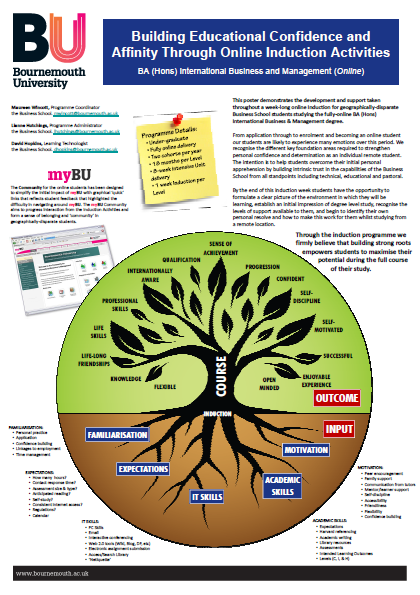Among the recommended resources to “watch, read and research” to prepare week 1 of the #ocTEL course, there was a discussion between
Diana Laurillard and
Stephen Downes on the extent to which
learning design should be supported computationally – (look at the webinar recording [
here]). The discussion started by a presentation by Diana Laurillard of the
Learning Designer, a “
software to engage university teachers in the design of technology-enhanced learning (TEL) which is informed by pedagogic research and appropriate theories of teaching and learning.” Then followed a presentation by Stephen Downes looking at learning design as a language, and hence with the power and the limits of a language. As we know,language is a tool to communicate, to represent, to share, to argue and to reason. But to some extent it is a poor and complex way of representing and communicating, and at the same time a marvellous and powerful instrument. That is our everyday reality… nevertheless, language is necessary for practitioners and researchers. Stephen suggests that the latter tends to conform to the preference of science for “
pure abstraction and formalism” (Bourbaki would have said “naïve formalism”, indeed beyond toy examples only computers handle pure formalism), whereas reality is always more complex than whatever formalism can capture. Then comes the difficult question: “
Is there a functionally useful language which can describe learning and teaching?” I guess that if the response is “no”, then the ambition of Learning Designer (and the project of the like) shrinks dramatically or even worse becomes irrelevant; if the response is “yes”, it may be because of a “
hidden positivism” and the dream for a language about learning being interpretation independent (a “
stupid” language). This is a rough summary, I agree, but I think fair to the content of the discussion and enough for the comments I would like to share.
When we engage in a discussion, there is always the tacit assumption that it exists and/or it is possible to build a common language even if locally in time and space for the sake of the communication. Many events during the conversation are meant to call for or facilitate this construction (esp. all the events revealing misunderstanding). Indeed, articulating and interpreting are the key processes. It may be the case that this common linguistic space vanishes with the end of the conversation; this is not a problem as long as it has played its role. But there are situations in which it is better if we have not to build again this space, for example for teacher training courses. This means that it exists a de facto functional language useful to describe learning and teaching, it is the language of training, or the language of the professional literature, or the language of the #ocTEL MOOC. This does not mean that it is completely fixed, static, unified and unique. On the contrary this language evolves under the requirements of practice and with the improvement of our understanding of teaching and learning. It is a language rich enough to welcome a variety of approaches and theories, from constructivism to connectivism. Actually, it is not because there would be a common language that we would have a unique model of learning and teaching. Such a language must be flexible and open enough to express different models (just as the mathematical formalism allows to express Euclidean or non-Euclidean geometry, as it were). Indeed, we must keep in mind that this common language is a social construct.
Looking at these issues from a scientific perspective, there are some objectives which come into play which change the ambition. Since I think that this conversation is not the kind philosophers had at the birth of psychology as a science, I accept the idea that it is good and possible to identify invariants in learning and teaching, and that it is possible to model some of the phenomena which arise with both. To describe them and to come collectively to an agreement on the validity of the related claims, it is indeed necessary first to have a precise language (and hence definitions) and some insurance that interpretation will be under (a reasonable) control. Indeed, this implies abstraction, that is: not taking all the complexity of teaching-learning on board. This is not a problem as long as researchers are not dogmatic and humble enough to be clear about this limit. It is here that we have the problem of communication between research and practice, which in fact is a problem only when underestimated or forgotten. No body is right by principle, we must have discussions, argumentations, efforts to share a language as a condition to understand the models and there limits, possibly indeed their failure. The computational support of learning design is just a specific case for this issue. It means that the science of teaching-learning as made enough progress to make such computational models possible. Indeed, such a model, even Learning Designer, is conjectural: it has to be discussed, its limits must be explore. It is important that users be aware that buying the software, they buy the underlying approach and model of teaching-learning. Hence, they have not to look at it as the orthodox way of thinking, but a possible way that they must confront to their own understanding, perspective and practice.
From these confrontations among practitioners, among researchers, and between practitioners and researchers will come the progress of our knowledge about teaching and learning theoretically and in practice. So, language is not a problem, it is a tool which gets its strength and efficiency from its adaptivity and dynamic nature (even in science which vocabulary and meaning evolve continuously).


